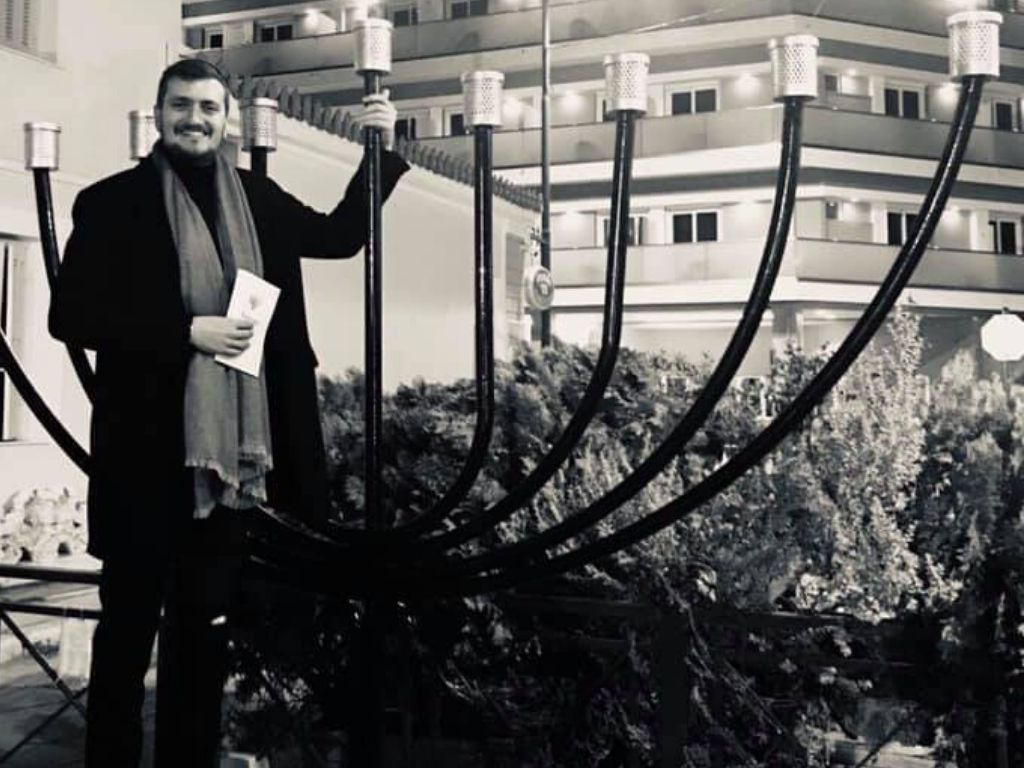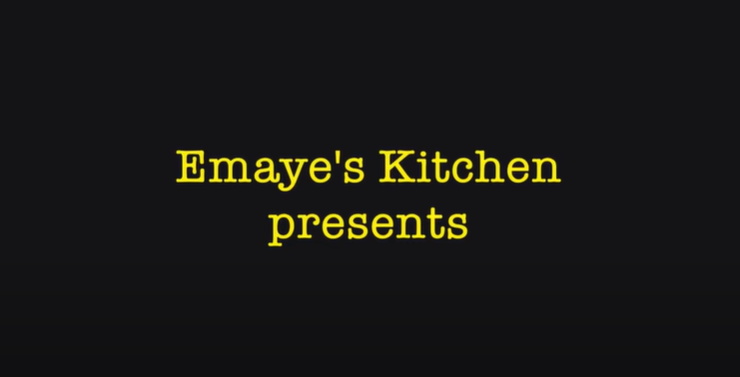I am sure people wonder how you can be Greek and Jewish, especially around Hanukkah, a time when we’re taught that the Maccabees proudly rose up against the pagan Greeks and regained Jewish independence. But it has never been a problem for me.
I’m a proud Sephardic Jew and grew up in the small but robust Greek Jewish community in New York. My congregation, Kehila Kedosha Janina, remains the only Greek Jewish Romaniote synagogue in the Western Hemisphere. Unlike Sephardic Jews like me who arrived in the former Ottoman Empire after the expulsion from Spain and spoke Ladino, Romaniote Jews have had a continuous presence in Greece and the former Byzantine Empire for over 2,300 years. These communities only spoke Greek or a Judeo-Greco dialect and practiced unique Jewish customs not found in any other communities.

Kehila Kedosha Janina in New York City, the only Romaniote synagogue in the Western Hemisphere. (Courtesy of Ethan Marcus)
I don’t think my Papou (grandfather), born in the small town of Veria in what is today northern Greece, would’ve recognized anything about the celebratory practices of “American” Hanukkah. Most of what we mistakenly call American Hanukkah traditions are actually Ashkenazi in origin and, other than lighting the menorah, are quite different than what I grew up with.

Greek loukoumades.
In Ioannina, a city in northern Greece that was once a major hub for Romaniote life, Hanukkah was a relatively minor holiday but still celebrated proudly. Romaniote Jews would often cook delicious loukoumades, a classic Greek dessert of fried dough balls in oil with honey and sugar, as opposed to the conventional sufganiyot in Eastern European communities. Growing up in New York, my father would make bimuelos, the Sephardic equivalent of fried dough or matzah meal made for Hanukkah as well as Passover. These delicious treats are what I think of when Hanukkah comes to mind.
Don’t get me wrong, there were in fact communities in Greece that grappled with the use of language surrounding Hanukkah, especially with the creation of the modern Greek state. Dr. Devin E. Naar, the Isaac Alhadeff Chair of Sephardic Studies at the University of Washington, wrote that on the eve of the Holocaust, the Jewish community of Salonica, once home to more than 50,000 Jews, published a new prayer book called Sha’are Tefilah. In the Hanukkah section, Naar notes that the author had changed the classic references in Maoz Tzur from the enemy Greeks to Syrians as a way to avoid sounding anti-Greek, as technically our persecutors were Hellenized pagans living in the region that’s today’s Syria. Naar also notes, “In the Al ha-Nissim prayer added to the Hanukkah liturgy that refers to the miracles associated with the holiday, the traditional reference to the ‘wicked Hellenic government” is quietly changed to the ‘wicked government.’”
Yet despite these changes in the Salonican prayer book, I, like many other Greek Jews, reject the notion that being Greek and Jewish is a paradox on Hanukkah. In fact, many theologians in the Greek Orthodox church look at the Maccabees as martyrs who modeled Christian monotheism against evil paganism.
These Hanukkah traditions are a testament to the diverse history and perseverance of the Jewish people, as well as our coexistence with local communities throughout the diaspora, particularly in Greece. This highlights something so rare in today’s Jewish world. Indeed, my hope is that as the Jewish community in the United States continues to develop into the 21st century, the conventional Jewish narrative no longer defaults to Ashkenazi Jewry and its traditions. Perhaps this Hanukkah, you’ll plan to cook some loukoumades or bimuelos with your children and sing the Ladino holiday song Ocho Kandelikas.







